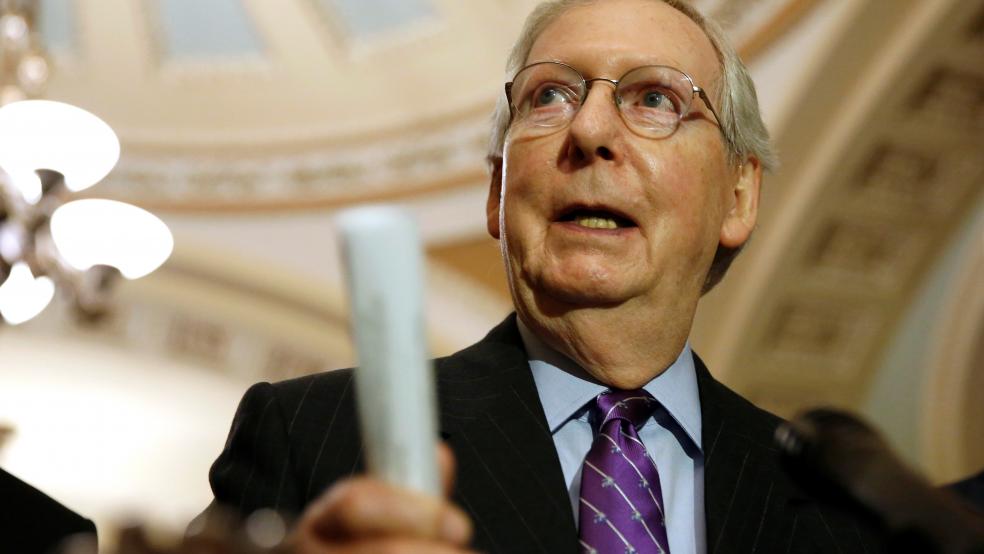It’s progress, sort of. The Senate on Thursday passed its first spending bills for fiscal 2020, which started at the beginning of this month. The bundle of four bills covers funding for the departments of Agriculture, Interior, Commerce, Justice, Transportation and Housing and Urban Development.
The bundle still must be reconciled in conference talks with the House — and there’s still a border wall, and other obstacles, standing in the way of real progress on passing the required 12 annual spending bills.
Negotiations between the House and Senate on how to divvy up the budget lawmakers agreed to in July have gotten bogged down by partisan fighting over President Trump’s use of military funding to construct barriers on the border with Mexico. Those talks resumed on Tuesday, with congressional aides and White House officials trying to find a path forward. That meeting resulted in little consensus as to whether progress had been made.
“Speaker Nancy Pelosi and Senate Majority Leader Mitch McConnell want to get all 12 spending bills passed by the end of this year, but a standoff over President Donald Trump’s border wall remains the biggest obstacle in bipartisan talks to avoid another government shutdown,” Politico reported Wednesday.
Democrats block defense bill: Underscoring the ongoing divide, Senate Democrats on Thursday blocked a defense spending bill for the second time, a move Republicans slammed. “Washington Democrats have talked up a storm in recent days, criticizing the Trump administration’s approach to Syria and the Middle East. Lots of talk," Senate Majority Leader Mitch McConnell said on the Senate floor, according to Military Times. “But apparently, they are not concerned enough about the Middle East and fighting ISIS to actually vote for the funding that keeps those missions going.”
Democrats oppose taking up the defense bill before lawmakers reach an agreement on topline spending allocations, and they object to backfilling $3.6 billion the Trump administration diverted from military projects to border barrier construction under the president’s declaration of a national emergency.
“The Republican leader has been accusing Democrats of threatening to block military funding. Now, that is an absurd statement if there ever was one. We’re simply trying to stop Republicans from stealing money from our military and putting it into the wall,” Senate Minority Leader Charles Schumer said.
Another stopgap spending measure: With no chance of getting appropriations bills passed into law before stopgap funding expires on November 21, lawmakers will need to pass another short-term spending bill, called a continuing resolution, to keep the government from shutting down.
House Appropriations Committee Chairwoman Nita Lowey (D-NY) said Thursday that Congress will need to extend funding past the end of the year, likely into February or March, according to The Hill, though congressional leaders reportedly have indicated that any short-term measure shouldn’t extend into next year.





